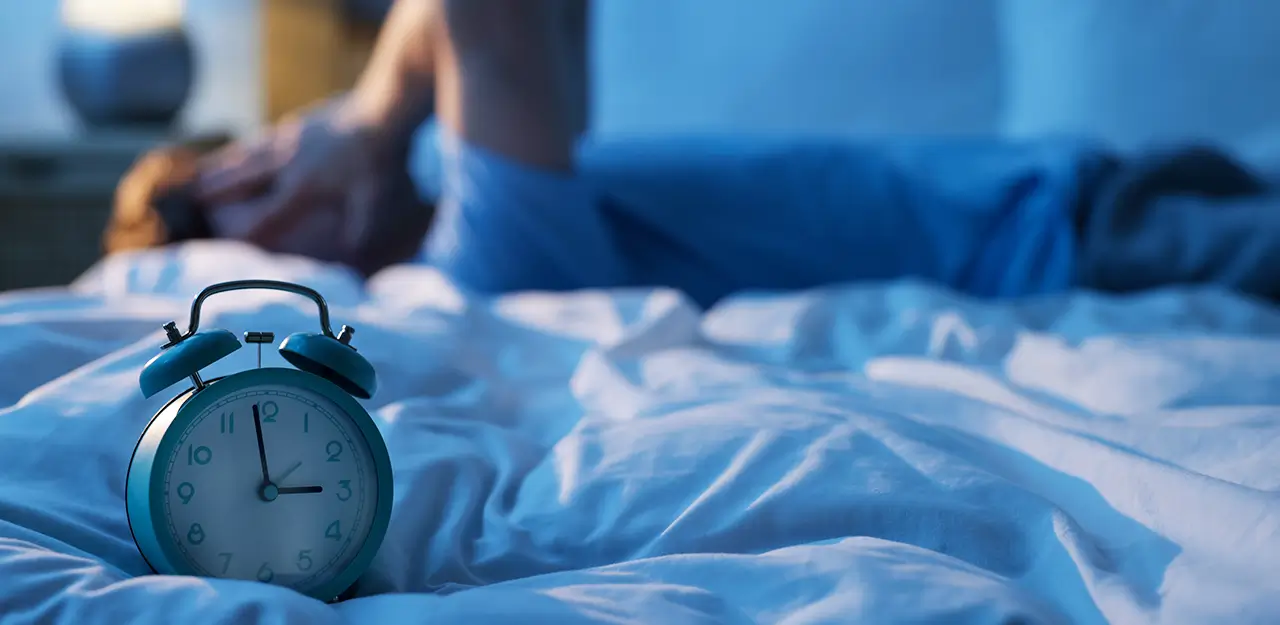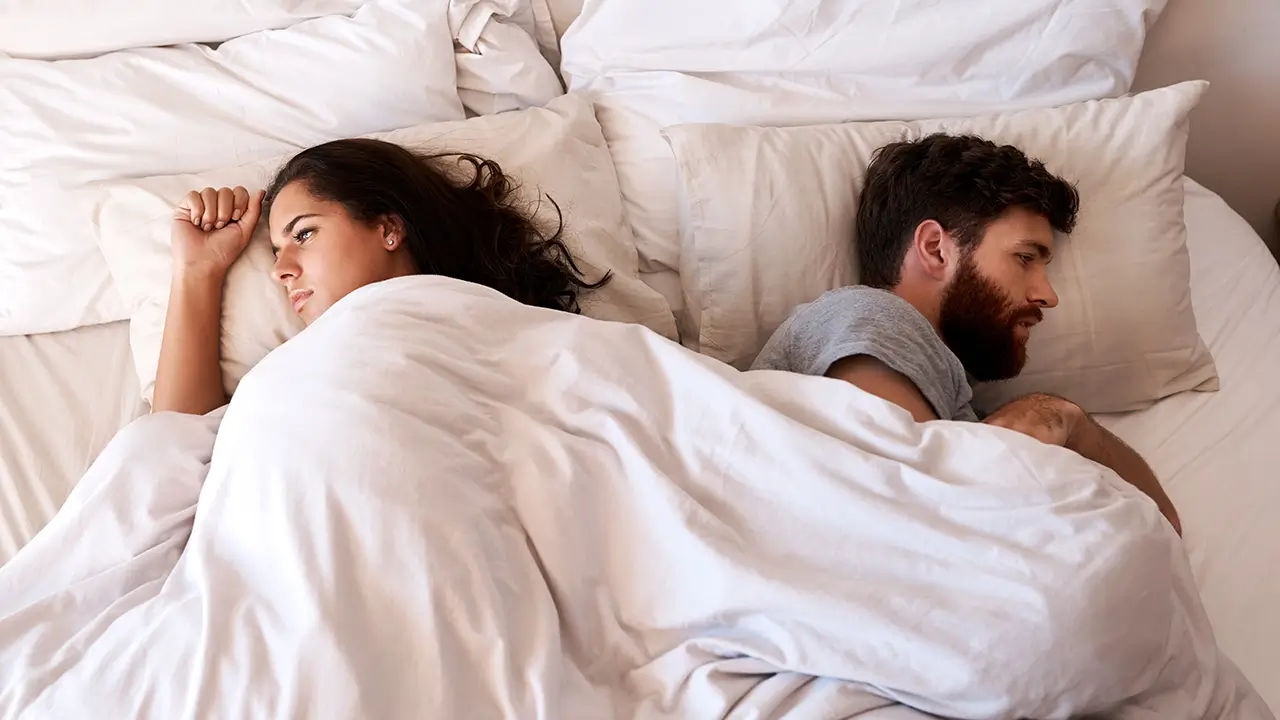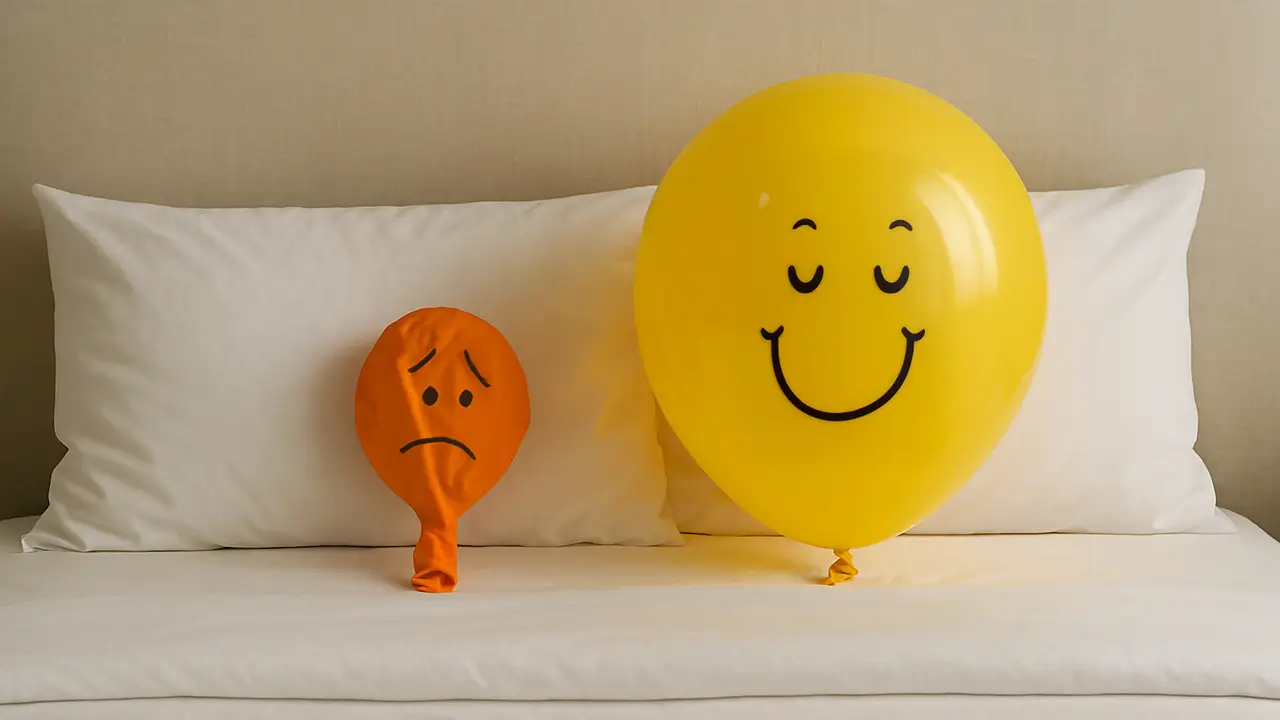
The Halloween treat that could promote a restful night’s sleep
Halloween might be more likely to conjure thoughts of late nights and scares that stop you from
drifting off. But an autumn treat could hold the secret to getting a good night’s sleep.
Read on to find out what it is and the other foods that could boost your sleep quality and wellbeing.
According to a study, 1 in 3 adults suffer from insomnia – a sleep disorder that can make it hard to
fall asleep or stay asleep. If it’s something you’re affected by, your dietary choices could be to
blame.
With this in mind, we at Mattress Online have worked with nutrition specialists to provide insights
into the food that could promote a restful night’s sleep and those to steer clear of.
You might be surprised to find you have some sleep-inducing treats on hand if you’ve been pumpkin
carving this year. In fact, pumpkin seeds could help you scare away the late-night insomnia blues.
Read below to discover the other dietary habits that Alex Ruani, Chief Science Educator at The
Health Sciences Academy, and Anna Mapson, Registered Nutritional Therapist from Goodness Me,
recommend for restful shut-eye.
5 more foods that could help boost your sleep
1. Carbohydrates
When you think about carbs and diet, you’re more likely to think about ditching them. Yet, while
carbs have a bad reputation, they are a vital part of your diet – they could improve the quality of
your sleep!
Carbs increase the availability of tryptophan in the brain. This amino acid produces melatonin, which
helps to control how and when you sleep. So, cutting carbs out of your diet could affect your sleep
pattern and how rested you feel.
Instead of cutting back, try opting for complex carbs, such as brown rice, wholegrains, and stretchy
vegetables to avoid a spike in your blood sugar.
2. Proteins
B vitamins play an essential role in your sleep, especially B12, which increases the body’s production
of melatonin and other sleep neurotransmitters. As a result, adding more B vitamins to your diet
could improve your sleep cycle.
Even a small deficiency in B vitamins could disrupt your sleep.
B vitamins are primarily found in animal-based foods, like oysters, fatty fish, poultry, eggs, and dairy
products. So, increasing your protein intake could lead to a better night’s sleep.
If you’re vegetarian or vegan, it’s important to incorporate high-quality protein sources into each
meal. You might want to add nuts or lentils to dishes to boost your vitamin B intake.
3. Plant foods
While the body produces its own melatonin, it’s interesting to note that certain foods will provide a
boost.
Plant-based foods, in particular, are often a rich source of melatonin. The great news is that many
are easy to incorporate into your usual means. A side of vegetables, especially peppers, mushrooms,
or legumes, such as beans and lentils, could be a simple way to boost your melatonin.
Some berries, including sour cherries, could increase your melatonin intake too – plus, they’re great
for a snack or a tasty way to boost your breakfast too.
4. Seeds
We’ve already mentioned that pumpkin seeds could be the perfect snack for helping you drift off
this Halloween. They contain magnesium, which may help you relax and, like many other dietary
changes on this list, enhances the production of melatonin.
If you’re not a fan of pumpkin seeds, don’t worry, there are plenty of other seeds and herds you
could reach for instead. Other great sources of magnesium are shelled hemp hearts, sesame seeds,
sunflower seeds, flaxseeds, almonds, and dried thyme.
5. Cereal grains
Magnesium is linked to sleep induction, but it’s zinc that research indicates could improve the
quality of your sleep.
So, adding good courses of zinc to your diet could mean you feel far more rested in the morning and
ready to take on the day. Sources of zine include cereal grains, such as oats and wheatgerm, and
sesame seeds, oysters, meat, and eggs.
Supplements could support sleep, but don’t take them before bed
As well as dietary changes, adding supplements to your routine could be a great way to make sure
your body is getting everything it needs to help you sleep.
However, be aware that certain supplements should be taken in the morning or noon to protect the
quality or length of your sleep. This is because they may contain ingredients like sugar or caffeine,
which could make it more difficult to drift off and lead to disruptions.
It’s best to avoid the following supplements before bed:
- B vitamins
- Multivitamins and energy herbs
- Vitamin D
- Calcium
- Vitamin C
Additionally, some vitamins are fat-soluble and are more effective when taken with meals, including
A, D, E, and K.
5 dietary habits that could harm your sleep
1. Sugar
We all know that too much sugar is bad for you. But did you know increased sugar consumption is
also linked to disrupted sleep patterns, more restlessness, and interrupted sleep?
Consuming sugary foods late at night could lead to your blood sugar levels rising, which may make it
more difficult to fall asleep. So, next time you’re reaching for a midnight snack, try a low-sugar
option.
2. Citrus fruits
Citrus fruits might be tasty and healthy snacks, but they’re best avoided in the evening. They are
likely to worsen reflux symptoms during sleep which can mean you’re more likely to wake up during
the night.
So, if you suffer from conditions like gastroesophageal reflux, you might want to eat citrus fruits in
the morning only. Those with reflex problems should also avoid, fatty foods, tomatoes, and allium
vegetables, like garlic and onion.
3. Too much water
Drinking plenty of water throughout the day is essential for a healthy lifestyle. But too much just
before bed could increase the risk of insomnia and mean you’re making multiple trips to the
bathroom.
4. Alcohol
Your favourite tipple might make you feel sleepy, but that doesn’t mean it’ll give you a deep,
restorative sleep. Instead, you’re more likely to wake in the night or feel sluggish in the morning
after enjoying a glass of wine or pint of beer.
What’s more, increased alcohol consumption can lead to a hangover with side effects like
headaches, digestive discomfort, tiredness, and dehydration. They could affect your daily
functioning and even lead to disrupted sleep the next night too.
5. Caffeine
It’s widely known that caffeine can disrupt your sleep, but you might be surprised by how long-
lasting the effects are. Even a midday coffee could interfere with your ability to sleep.
Research has shown that consuming 400mg of caffeine six hours before bedtime could postpone
sleep by as much as an hour. So, limiting caffeinated drinks, like coffee, tea, cola, or energy drinks, in
the afternoon and evenings could be useful.
It’s not just drinks you might want to avoid either. Some foods also contain caffeine, including dark
chocolate, milk chocolate, cookies, and sweets.
References
About our Team
PR professional and ex-broadcast reporter, Sharon combines 20 years of experience to highlight a wide variety of lifestyle topics related to sleep and wellbeing.
Related Articles
It’s not you, it’s your mattress – how your bed can ruin your sex life
Sales Enquiries
Mon-Sat: 9:30am - 5:30pm
Sunday: 10am - 4pm
Customer Service
Mon-Sat: 9:30am - 5:30pm
Sunday: 10am - 4pm












